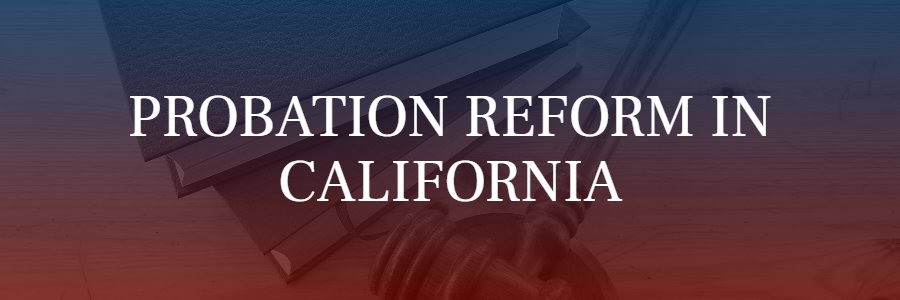AB 1950: Guide to New Probation Reform in California
Posted in California Law,Criminal Defense on February 22, 2021
For many people, prohibition is seen as a way to serve time without actually having to go to jail or prison after a conviction for a misdemeanor or felony offense. While this may be seen as a positive way for a person to complete their sentence, the reality is that the burdens of probation can be overwhelming, particularly when it comes to the amount of time a person may be required to serve on probation before they are cleared. However, the maximum allowable time a person can be sentenced to probation has changed in the state of California as a result of Assembly Bill 1950 (AB 1950).
What is AB 1950?
AB 1950 was proposed by Assemblymember Sydney Samlager (D-Los Angeles). This new law, which was signed by Governor Gavin Newsom on September 30, 2020, completely reforms the amount of time that a person can be required to spend on probation.
As a result of AB 1950, there are now caps (or limitations) on the period of time a person can face probation, depending on the type of conviction they have received. These caps are as follows:
- 1-year probation cap for most misdemeanor offenses in California
- 2-year probation cap for most felony offenses in California
AB 1950 was proposed and passed as a way to address the lengthy probation terms as well as the fact that many probationers were subjected to lengthy and unjust prison sentences after violating probation. While the overriding argument for adjusting probation laws in this state was to address these rights violations, the reality is that California was spending billions of dollars in supervising and housing prisoners simply due to probation violations or lengthy probation periods.

When do the changes take effect?
The language of AB 1950 specifically says that the new one- and two-year probation caps become effective on January 1, 2021. As a result of this legislation, any relevant crimes committed on or after that date are subject to this new law. In addition, crimes committed before January 1, 2021 that have not yet reached final disposition or are pending sentencing will also be included in the terms of AB 1950.
In addition, crimes that occurred and were sentenced before January 1, 2021, are likely to be subject to this new legislation as well, though the person serving the additional probation sentence will have to petition to have the sentence changed to be in line with the new law. Contact our Riverside defense attorney to discuss if these changes in probation laws apply to your case.
Exceptions to AB 1950
The one-year and two-year probation limitations will not apply to any misdemeanor or felony offenses that include specific probation links within their provisions. Two examples of offenses that list specific probation lengths within their provisions include drunk driving and domestic violence. Each of these crimes contains a clear mandatory probation period within the statute language.
Additionally, the two-year probation limitation will not apply to felony convictions where the total value of property taken by the offender exceeds $25,000.
The provisions of AB 1950 will not apply if someone is convicted of a violent felony (regularly referred to as a strike offense). Any person who pled guilty to residential burglary, threats, or robbery will not qualify under the new law.

